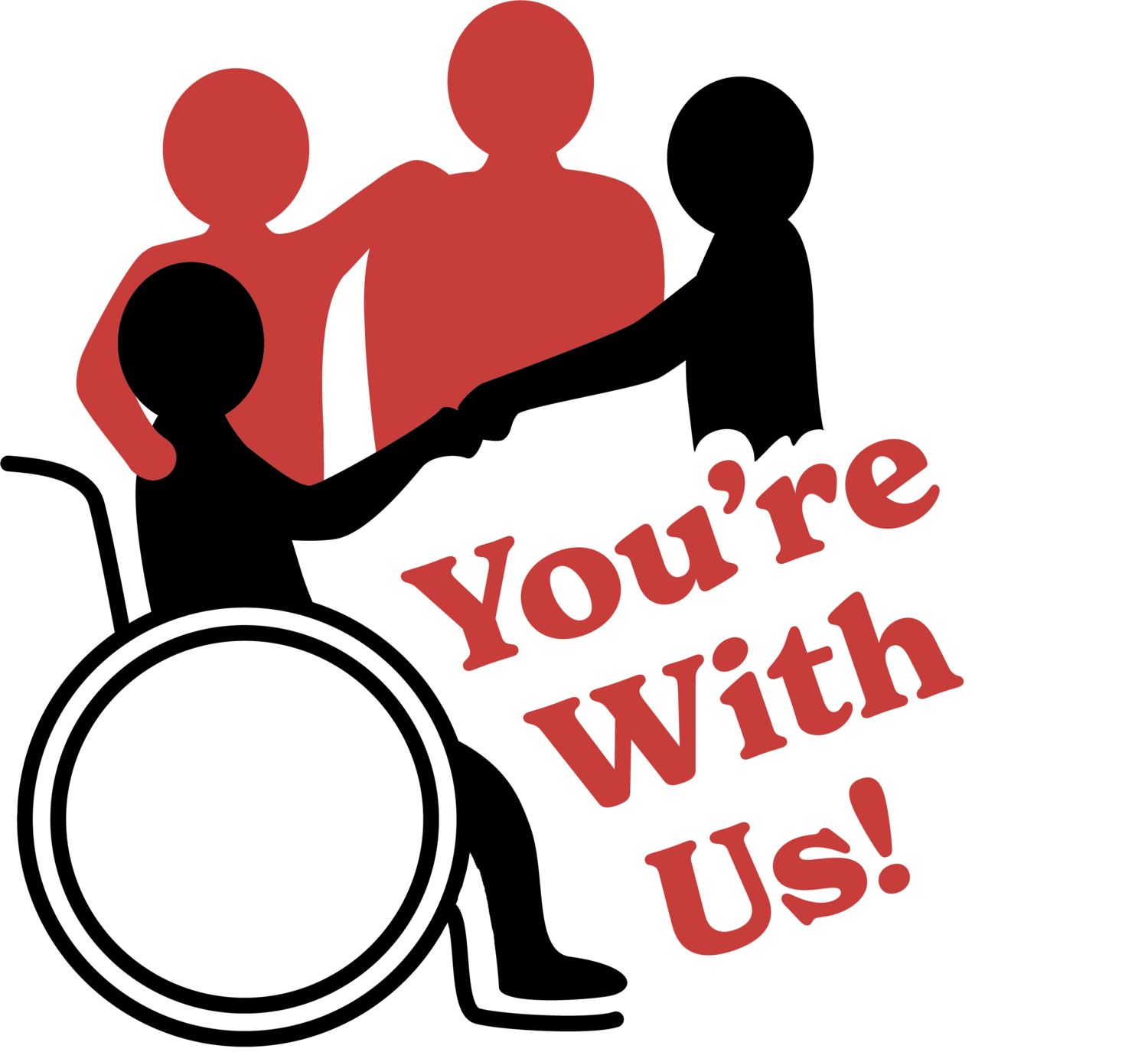Reflections at the End of My You’re With Us! Co-op
By Leo Hellawell
My time as a co-op with You’re With Us! has been filled with excitement and engagement. I have grown as a person, while developing patience and empathy towards others. I have learned how to become comfortable being uncomfortable, speak in front of others, reach out and hold phone calls with adults, and present at fairs.
You’re With Us! offers such a unique co-op experience in that there is less micromanaging and so much independence. Throughout my time as a co-op, I have learned how to create structure in my life, which has helped me personally and also allowed me to make meaningful impacts in the lives of others. Here’s a look into what my time at You’re With Us! Has been like for the past 6 months.
By far, my favorite part about the You’re With Us! co-op is the mentoring. I have been able to mentor two program participants who are both on the autism spectrum. Both of them are unique and different in their own ways but share one thing in common: they care SO, SO much. A lot of us have struggles that we face in our own lives, but those with disabilities tend to have it harder. There are parts of daily life that we may have to put less effort into, such as time management, planning, and social skills, but those with disabilities have to expend more energy just to get by.
As a mentor, I have been inspired by both of my mentees’ desires to grow, develop, and change. Despite facing intense adversity, both of them have always been open to listening and getting advice. Aside from this, they have found so much value in being social. Being able to spend one-on-one time with my mentees has been valuable. Both of them live outside the city of Boston. Being able to try new things and have new experiences in Boston has been very fulfilling to them. We have done activities such as going to watch a baseball game at Fenway Park, a trip that brought my mentee into a vibrant and exciting environment. Engaging with my mentees in the touristy areas of Boston, including Newbury Street, Harvard Square, and the Museum of Science neighborhood, has also been very eye opening to my mentees. The lives of the people that I mentor can be lonely and at times pretty boring. Having a weekly experience that brings enjoyment can be something that distracts mentees from the stressful parts of life.
When I think about my time with my mentees, I remember there was one experience that really meant something to me. I had given my mentee a recommendation to not use his phone in the morning, in order to create healthier habits. One of his main struggles was being productive with his time and finding things to do. He took action based on my recommendation and has been not using his phone in the morning for months now. This has opened up an opportunity for him to use his time more effectively and to be more socially engaged outside of work. This was a moment as a mentor that really made me happy. I proved to myself that my passion for helping others and improving their quality of life was actually working.
Outside of mentoring, a part of the co-op that I have really enjoyed is the travel. A large part of the co-op involves flyering in different areas around Boston, as part of an effort to recruit new mentors and new program participants. I have traveled around different areas, such as Newton, Jamaica Plain, and Downtown Boston. I’ve visited different college campuses, such as Tufts, Boston University, and Mass College of Art and Design. Distributing flyers also brought me to Cambridge and Roxbury. Going on these little trips, I have encountered different types of people, while learning about outreach and developing my own interpersonal skills. Experiences such as flyering and speaking in front of classes have helped me build confidence in my own abilities. I think this kind of work would also benefit future co-ops, helping them expand their professional skills.
Of course, being a co-op wouldn’t mean as much without being able to connect what I’ve learned back to my studies at Northeastern. Being a psychology student, there is quite a bit that I have been able to apply to my experience as a co-op with You’re With Us!. The biggest thing that I learned as a psychology student is the understanding of different disorders and how they are treated. Usually, the most effective treatment for anxiety disorders and neurological disorders is Cognitive-Behavioral Therapy (CBT). CBT is heavily tied to understanding how thinking can impact one’s well-being. CBT in action involves changing negative and self-defeating thoughts, while developing skills to handle different types of stressors. The most common neurological disorder that those whom I mentor face is autism. The biggest struggles that my mentees face is getting really low on lows and challenges in handling the different stressors that life presents. Whenever I am spending time with a mentee and I notice them having a negative thought pattern, I try to either change the subject or offer words of encouragement in an effort to reframe their thinking. In other words, I help them focus on the fun that’s in front of them and parts of life to look forward to, rather than letting them fall down the trap of negative thinking. Both of my mentees also face anxiety in different situations, which I have been able to relate to, as I have OCD. The different types of situations that have caused my mentees angst include: ordering in public places, showing up late to meetings, and at times answering questions that I ask them. When these situations occur, I try to employ what I have learned about CBT, but in a gentle manner. I have always tried to be someone who pushes my mentees outside their comfort zone, while also being patient and understanding. This has been the most successful and effective approach for me.
My co-op experience with You’re With Us! has helped me tremendously when dealing with overcoming adversity and trying new things. Prior to working with You’re With Us!, I used to have anxiety surrounding making public presentations and doing community/public outreach. I was also worried about what might go wrong and would try to be perfect. In essence, I had way too much overthinking in my life. As a co-op with You’re With Us!, I have gained so much growth in this area. This can be attributed to my not putting too much pressure on myself. In life, when you don’t overthink too much, things tend to work out in your favor. From these experiences, I learned quite a bit about myself. Most importantly, I discovered how capable I am.


